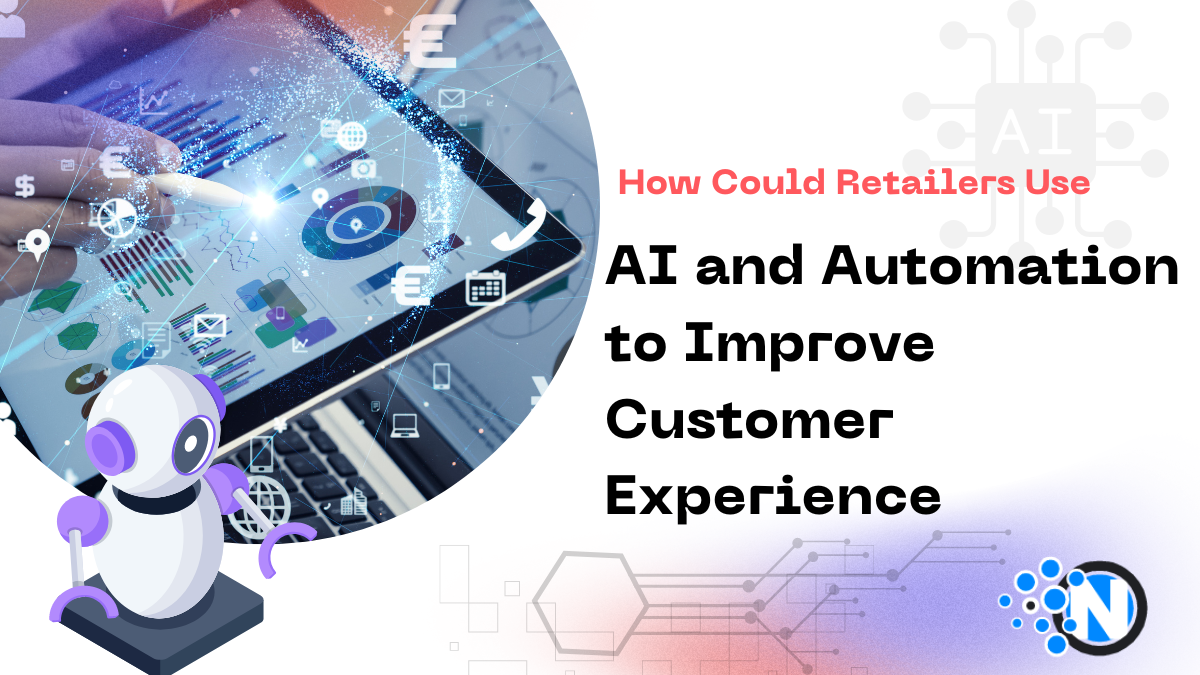
In this digital age, retailers struggle to provide excellent customer experience to modern consumers. With the rise of e-commerce and changing consumer expectations, businesses must embrace innovative technologies to stay competitive. One such technology is AI and automation. By leveraging AI and automation tools effectively, retailers can significantly enhance customer experiences and build long-lasting relationships.
This article includes different ways in which retailers can harness the power of AI and automation to improve customer experience and drive business growth.
Why Should Retailers Focus on Customer Experience?
Retailers need to provide great customer experience because it is important for success and long-term development. Customer experience includes every interaction of a customer with a business, from initial contact to after-purchase support. By providing excellent experiences, businesses can build customer loyalty, drive customer satisfaction, and differentiate themselves from competitors. Positive customer experiences increase customer retention, bring repeat sales, positive referrals, and ultimately, business growth. Furthermore, satisfied customers are more likely to become brand advocates, sharing their positive experiences with others and recommending your business.

Implementing AI and Automation in Retail
AI and automation in retail have changed the industry, bringing numerous benefits and transforming how businesses operate. By leveraging AI tools, retailers can analyze huge amounts of data, gain valuable insights, and make data-driven decisions within moments. Automation streamlines different processes, reducing manual labor and human errors while increasing efficiency and productivity. These tools and solutions enable retailers to deliver personalized experiences, optimize inventory management, enhance customer service, streamline operations, and create targeted marketing campaigns. By embracing AI and automation, retailers can stay ahead of the competition, improve customer satisfaction, and drive business growth in the dynamic retail landscape.
Understanding Customer Behavior with AI
Harnessing Data for Personalization
AI-driven technologies enable retailers to gather and analyze vast amounts of customer data. With the help of machine learning algorithms, retailers can gain valuable insights into consumer preferences, purchase history, and search behavior. This data can help create personalized experiences fit to individual customers. By understanding customers’ needs and desires, retailers can create and implement targeted offers, recommendations, and relevant content, in that way increasing engagement and customer satisfaction.
Predictive Analytics for Anticipating Customer Needs
Predictive analytics, powered by AI, enables retailers to anticipate customer needs and offer proactive solutions. By analyzing historical data and patterns, AI algorithms can forecast customer behavior, such as predicting when a customer is likely to make a purchase or churn. Using this information, retailers can take positive steps to retain customers, avoid churn, and offer personalized recommendations or discounts at the right time. This not only improves customer satisfaction but also improves sales and customer loyalty too.
Enhancing Customer Support and Engagement
Chatbots for Instant Assistance
AI-powered chatbots have revolutionized customer support by providing instant assistance and round-the-clock availability. Chatbots can quickly address common customer queries, provide product information, and offer guidance throughout the purchase journey. By employing Natural Language Processing (NLP) capabilities, chatbots can understand customer inquiries and respond in a human-like manner. This reduces wait times, enhances efficiency, and improves overall customer experience.
Virtual Assistants for Personalized Recommendations
Virtual assistants, such as voice-activated devices and mobile applications, can offer personalized product recommendations based on customers’ preferences and previous interactions. By leveraging AI algorithms, these virtual assistants can understand natural language commands, process user preferences, and suggest relevant products or services. This level of personalization not only improves customer satisfaction but also drives cross-selling and upselling opportunities for retailers.

Streamlining Operations with Automation
Inventory Management and Supply Chain Optimization
AI and automation play a vital role in streamlining inventory management and supply chain processes. Retailers can optimize inventory levels, ensure product availability, and minimize stockouts by analyzing historical sales data, customer demand patterns, and external factors. Furthermore, AI-powered systems can automate replenishment, triggering orders when inventory reaches predefined thresholds. This automation improves efficiency, reduces costs, and ensures a seamless shopping experience for customers.
Streamlining Checkout and Payments
Automation can simplify the checkout and payment process, eliminating friction points for customers. Technologies like RFID (Radio Frequency Identification) and AI-powered checkout systems enable retailers to provide a seamless and contactless shopping experience. Customers can quickly scan items, send payments, and complete transactions without waiting for hours. This improves efficiency, reduces waiting times, and enhances customer experience.
Challenges of Implementing AI and Automation Retail Industry
While there are numerous benefits to implementing AI and automation in retail, businesses may also face certain challenges in the process:
Cost of Implementation: Adopting AI and automation technologies often requires a significant upfront investment. Businesses need to allocate resources for infrastructure, software development, employee training, and ongoing maintenance. Financial commitment can be a barrier, especially for smaller retailers with limited budgets.
Integration Complexity: Integrating AI and automation systems with existing technologies and processes can be complex. Retailers may face compatibility issues, data integration challenges, and the need for system updates or upgrades. Ensuring seamless integration across different departments and systems within the organization requires careful planning and expertise.
Data Privacy and Security: AI and automation rely on vast amounts of customer data for analysis and decision-making. Maintaining data privacy and security is important to protect sensitive customer data from potential breaches or unauthorized access. Businesses must invest in advanced security measures, compliance with data protection regulations, and transparent data handling practices.
Workforce Transition: The introduction of AI and automation technologies may lead to concerns about job displacement among employees. Retailers need to address these concerns by providing training and upskilling opportunities to employees, enabling them to adapt to new roles that complement automated systems. Managing the workforce transition and ensuring effective collaboration between humans and machines is essential for success.
Ethical Considerations: AI-powered systems need to adhere to ethical guidelines to avoid bias, discrimination, or unfair practices. Retailers must ensure that AI algorithms and automated processes are transparent, and accountable, and do not compromise ethical standards. Balancing automation with human judgment and maintaining a customer-centric approach is crucial to building trust and maintaining ethical practices.
Customer Adoption and Acceptance: Some customers may hesitate or resist interacting with AI-driven systems, such as chatbots or virtual assistants. Retailers must invest in user-friendly interfaces, clear communication, and seamless user experiences to encourage customer adoption and acceptance of these technologies. Educating customers about the benefits and addressing any concerns or skepticism is essential.
Continuous Adaptation and Innovation: The retail industry is dynamic and constantly evolving. To fully harness the benefits of AI and automation, businesses need to stay updated with the latest advancements, adapt to changing market trends, and continually innovate their strategies. Embracing a culture of learning, experimentation, and agility is crucial to remain competitive in the rapidly changing retail landscape.
Conclusion
As retailers strive to meet customers’ evolving demands, incorporating AI and automation into their operations is crucial for staying competitive. By harnessing the power of AI, retailers can gain valuable insights into customer behavior, personalize experiences, and anticipate their needs. Automation streamlines operations improves inventory management, and enhances the overall shopping experience. By adopting these technologies, retailers can better engage customers, boost loyalty, and drive business growth in the dynamic and ever-changing retail landscape.




